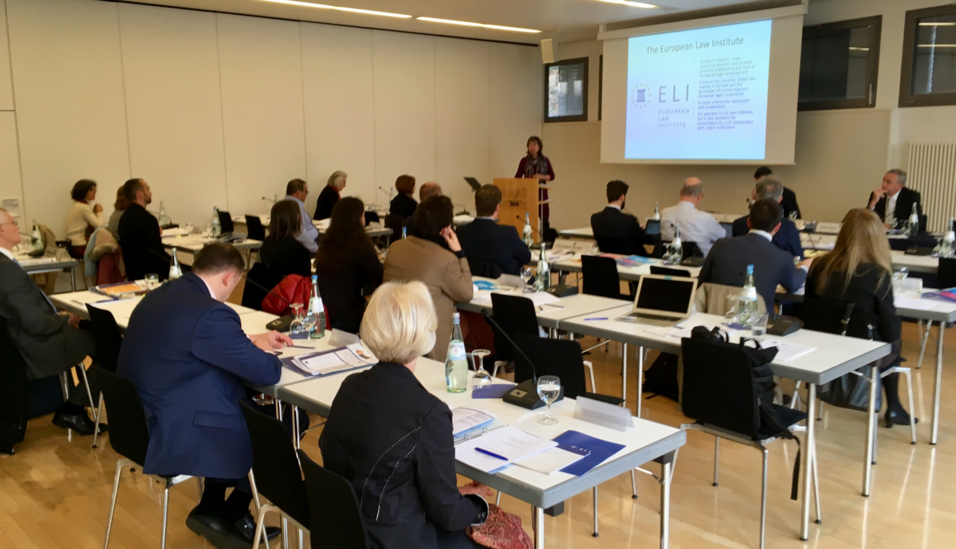The Conference aimed at analysing the impact of digitalisation in the delivery of justice in the XXI century. Participants also looked into the innovative models of interaction between Court-Based Dispute Resolution Processes (CBDRP) and Alternative Dispute Resolution (ADR).
The starting point was the ELI–ENCJ Statement on The Principled Relationship of Formal and Informal Justice through the Courts and Alternative Dispute Resolution, elaborated upon within the framework of the eponymous project, which was approved by the ELI Council and the ENCJ General Assembly in 2017.
Sir Geoffrey Vos (Former President of the ENCJ, Chancellor of the High Court) explained that justice should be easily accessible or young people will fail to understand why such services are not available on their smartphones yet. Diana Wallis (Former Vice-President of the European Parliament, Former President of the ELI, Solicitor, Mediator, MICArb, Senior Fellow of the Law School at the University of Hull) and Ales Zalar (President of European Centre for Dispute Resolution (ECDR)) proceeded to outline the ELI-ENCJ project. Among other things, they emphasied that the project team represented various nationalities, and explained that the Statement contains 21 principles on standards for ADR processes and the preservation of access to justice. Simone Cuomo (Senior Legal Advisor, the Council of Bars and Law Societies of Europe (CCBE)) focused on the fact that all dispute resolution processes should be human-centered and that the ELI–ENCJ Statement reflects this.
During the second session, which focused on the impact of the UN Convention on International Settlement Agreements Resulting from Mediation (the so called Singapore Convention), Norel Rosner (Legal and Policy Officer, DG Justice and Consumers), who was the EU negotiator of the Convention, presented the background of the negotiation process. Karl Mackie (Founding President of the Centre for Effective Dispute Resolution, CEDR) emphasised that the Convention might potentially promote mediation, while Catherine Kessedjian (Professor emerita, University Panthéon-Assas Paris II, Arbitrator and Mediator) pinpointed some of the shortcomings of the treaty.
The third session, on Digitalisation, Advanced Technology and Dispute Resolution, began with Christoph Decker (Team Leader, DG Justice and Consumers, Unit E3, European Commission) presenting an update on the Implementation of the European Framework for Consumer ADR/Online Dispute Resolution (ODR). Raffaele Battaglini (Founder of the Battaglini-De Sabato Law Firm and Chief Legal Officer at Jur AG) discussed how blockchain technology can facilitate dispute settlement.
All sessions were followed by lively discussions and there was a strong sentiment by the end of the Conference on the need for a follow-up project in order to ensure that various dispute resolution processes create a coherent and effective system, make use of technological developments and allow for efficient access to justice.
The ELI would like to thank ERA for hosting this Conference.
You can find more information about the project here and the programme of the event here.

